|
|
Post by jack on May 7, 2013 4:29:10 GMT -6
Yep!
|
|
|
|
Post by jack on May 6, 2013 0:59:32 GMT -6
Gidday Jack..sorry about losing your George..We have Morris indoors..he is our Grandpa cat..Old & cranky..& meows all the time. Non-stop. Wish we could make him stop it..but..cant. Thanks Laura. A few weeks after George died my wife brought home George the second. He looked so similar with almost identical markings that I didn't want anything to do with him because it was too much like a ghost. Now we are such good friends that he will stand in front of me, look up with a certain look in his eyes to let me know get reddy for him, then he jumps up onto my knee then he just runs up to my chest for a good patting. Talk about hard case Eh! |
|
|
|
Post by jack on May 1, 2013 2:11:33 GMT -6
Gidday
He took a bloody risk but it sure worked Eh!
|
|
|
|
Post by jack on Apr 27, 2013 2:33:52 GMT -6
|
|
|
|
Post by jack on Apr 27, 2013 2:23:34 GMT -6
|
|
|
|
Post by jack on Apr 27, 2013 2:21:22 GMT -6
Gidday
Thanks. Yep they are.
My Georges' both loved being patted rather than stroked.
Try patting your cat, start very gently till they get the hang of it then you will find that really enjoy ever a dog sorta pat.
|
|
|
|
Post by jack on Apr 26, 2013 4:13:20 GMT -6
Gidday 2 years ago my friend of 16 years, George, died. I cried.  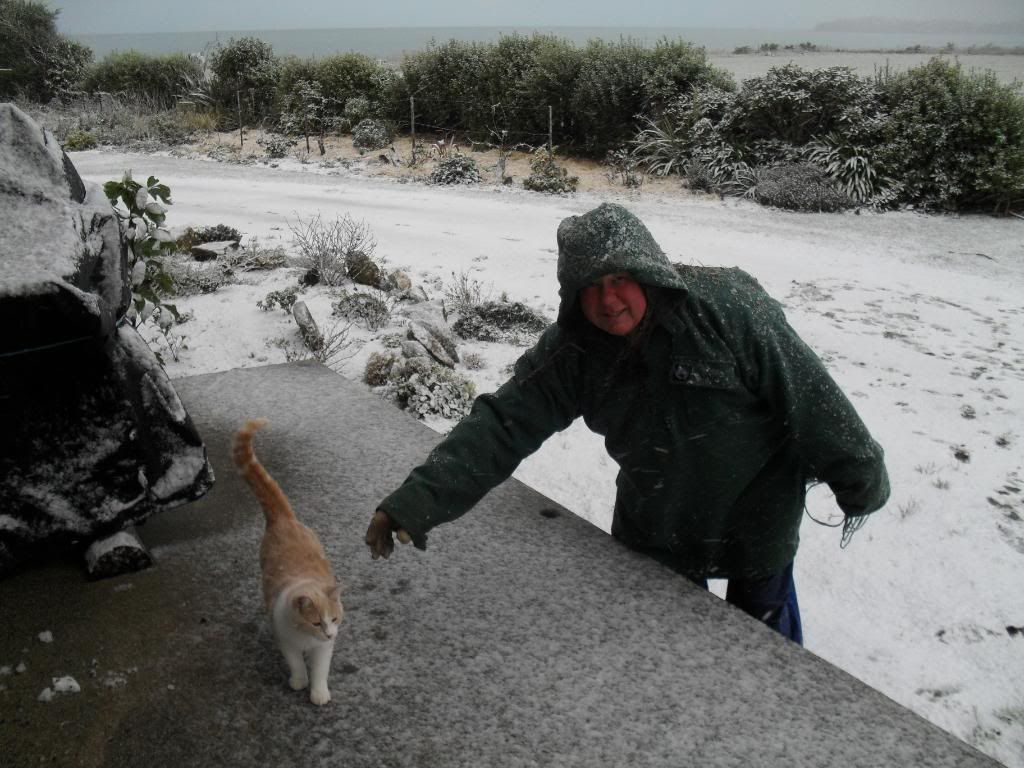 His sister, 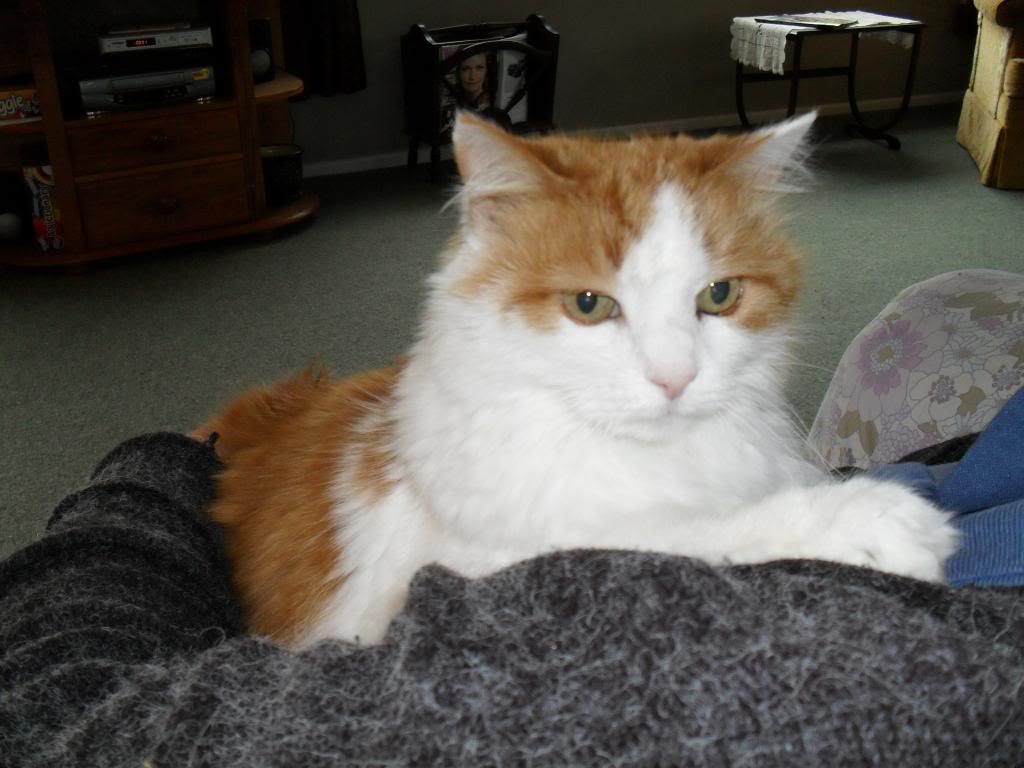 from same litter, had died two weeks before hand and he just fetted so much he couldn't eat so he waisted away. But then, a few weeks later we found his reincarnation. George II 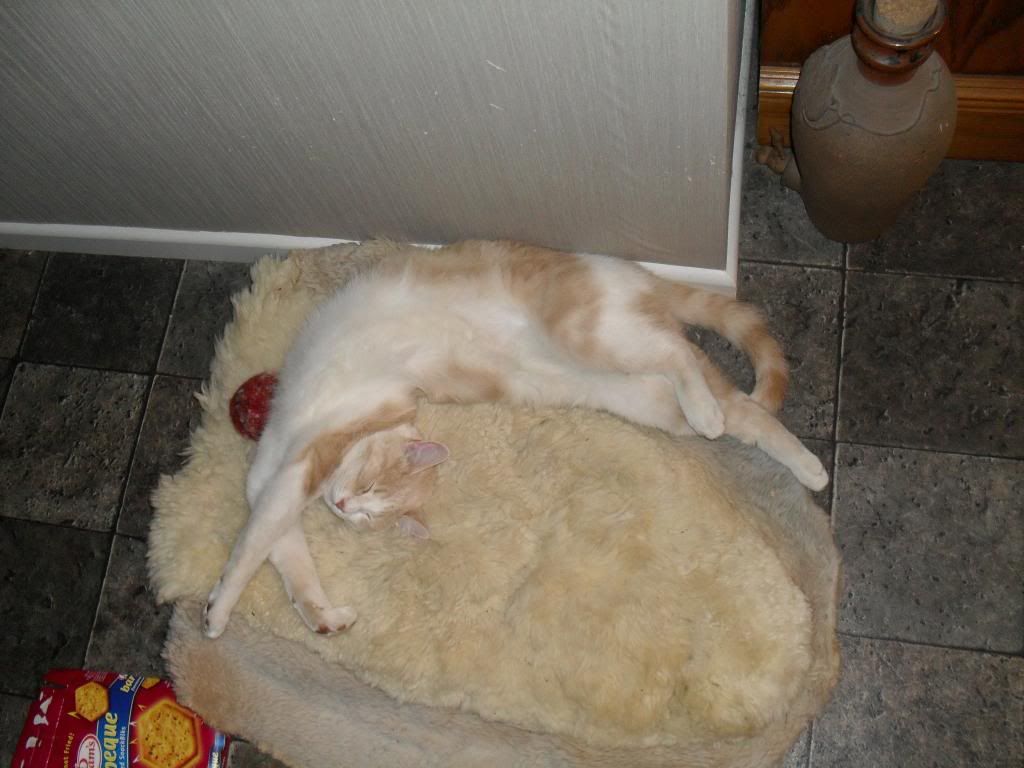 |
|
|
|
Post by jack on Apr 26, 2013 4:04:00 GMT -6
Gidday 2 years ago my friend of 16 years, George, died. I cried.   His sister,  from same litter, had died two weeks before hand and he just fetted so much he couldn't eat so he waisted away. But then, a few weeks later we found his reincarnation. George II  |
|
|
|
Post by jack on Apr 12, 2013 1:45:05 GMT -6
Gidday
I had some feed oat feed straw that and it caused a few problems for a while so I hope your info is right.
I would suggest that while the squash is still small only water immediately around them. I believe that you will get a hellava good crop out of that the way it looks now.
|
|
|
|
Post by jack on Apr 11, 2013 3:07:27 GMT -6
WOW!
|
|
|
|
Post by jack on Apr 11, 2013 3:05:41 GMT -6
Gidday
What sorta straw is that? I have only ever seen hay or oat feed straw sprout like that.
|
|
|
|
Cabin
Apr 4, 2013 2:52:43 GMT -6
Post by jack on Apr 4, 2013 2:52:43 GMT -6
Gidday
That looks brilliant.
But hey, what sorta timber is that? Pretty cool lokking.
|
|
|
|
Post by jack on Apr 3, 2013 2:30:46 GMT -6
|
|
|
|
Post by jack on Mar 20, 2013 1:33:40 GMT -6
Gidday
If you have a commercial product that is redily available at not too high a cost that is organic for heating up compost, I say go for it.
I only wish we had such a product available here.
|
|
|
|
Post by jack on Mar 19, 2013 2:28:50 GMT -6
Gidday
I have normally just tipped the maure or fert on the top then watered it in. Pig or chook poop are best as far as I believe. But straight N like urea or similar gives a very fast hot composting.
Root crops come out clean and carrots come come out really clean and crisp, often so crisp you caint cut them without them shattering. Beautiful to eat raw.
With spuds, I drive a crow bar in as far as possible and wiggle it arround then stick a spud as far down as I can.
I am sorry but I have no idea what 13-13-13 is unless it is the N.P.K. rating of a fertilizer.
I have grown very successfully:-
Brassicas
Carrots
Beetroot
Spuds
Just remember, don't over water and don't let it dry out.
|
|
|
|
Post by jack on Mar 17, 2013 23:58:28 GMT -6
Gidday
The only thing that could be bad in your yummy sounding lunch could be in whatever the dressing is made of.
|
|
|
|
Post by jack on Mar 17, 2013 23:53:17 GMT -6
Gidday
I have used bales that were several years old and also bales that had gotten wet before being taken to the barn, some quite mildewy too.
I have never added anything in the way apart from the fertilizer or manure to start the composting and it is important that it is high nitrogen, then have had up to three crops of different veges from them.
However, with veges with very small seeds I have just sprinkled the seeds on the bales, rubbed them in a bit with my hand the added a very thin layer of soil just to cover the seeds. Just remember though, the plants are up off the ground level so they need quite regular watering, and thats about all you need to do too.
Having said all that, and knowing how deficiencies can cause big problems with health from food that looks healthy so it would be a good idea to add some miner nutrients and trace elements for your personal health, but I believe it is not needed to grow nice looking veges.
|
|
|
|
Post by jack on Mar 17, 2013 3:18:42 GMT -6
Gidday
Yes hay and straw are very different. This is how I see it. Straw is the residue after a cerial or grass crop has had it's seeds or grain harvested. In other words, the entire plant above the ground with the exception of the seed.
Hay is a grass or legume like clover or alphalpha that has been dried for long term storage. The most common hay that I know of is what we down here called meadow hay which if normally just mixed species pasture but sometimes a specialist hay grown like clover or alphalpha which is really excellent fodder for livestock.
Now I believe that aplphalpha hay is normally havested before it seeds so it is absolutely perfect for hay/straw bale gardening where as normal hays are chock full of seeds, and any seed in any garden that you don't want is a weed no matter how good a pasture it comes from and if on the outside of the bale it does not get hot enough you could turm what should be a weed free garden into a weedy mess. Believe me, I know cos I have been there and done that. So, straw and alphalpha hay are both weed free and yes alphalpha is normally too expensive. But if you can get some that is rain damaged do not hesitate in grabbing it.
|
|
|
|
Post by jack on Mar 16, 2013 1:59:47 GMT -6
Gidday
Fill, that list of chemicals is rally frightening.
With the straw bale gardening the thing to remember is that the fertlizer to use must be nitrogen to feed the bacteria otherwise it will not heat up and sterilize it. It is bbest to use an organic manuure the is high nitrogen like pig or chook poop but the horrible urea or amonium sulphate if it has to be.
After reading what Fill has said I would be very wary about using straw over there unless I knew exactly what had been put on it. But of course if you can get access to lucerne hay what I believe you may call alphalpha, then I believe that you will be failly safe cos it is just so suseptical to chemical damage like any legume, I don't believe that there will be any chemical residues.
|
|
|
|
Post by jack on Mar 10, 2013 1:57:23 GMT -6
Gidday
Straw bale Gardening
Here is a brief history of straw bale gardening as I understand it. I first heard of it in the 1980's when I was promoting Sabbatical Fallow at our National Agriculture Fieldays. Some young Jewish people from Israel were fascinated with the Sabbatical Fallow that I was doing and my reasons for doing it, and that's another long story too.
Well these young people told me about straw bale gardening and showed me some literature about how and why it was done in Israel. When the new nation of Israel was first established in 1949, there was almost no agriculture industry there at all, only large tracts of desert. They had thousands of people flocking into the country and no way of feeding them so had to figure out a way to kick-start the production of food.
Out in desert or arid areas where that could get some water, they lay the bales of straw down in rows, on a plastic film. The plastic was to conserve the precious supply of water to stop it just soaking down into the dry soils. It also meant that they could plant in the same area every year without breaking their Sabbatical Fallow traditions whereby the soil had to be rested every seventh year, as the plants weren't actually growing in the soil but on the top of the plastic, killing two birds with one stone.
The method that is used is the bales are soaked with water then high nitrogen manure or fertilizer is applied. The high nitrogen and the water assists the bacteria break down of the straw and this process causes the straw to heat up which also sterilises the straw and kills any seeds that are in it.
As soon as the straw has cooled down you can plant directly into the bales. Seeds can be just sprinkled on top then rubbed into the straw so that they are covered, or small plants planted into hole poked into it. I use a crow bar to drive holes right through the bales and push my spuds as deep down as I can.
This is really easy care organic gardening because your plants grow really healthily and there are little or no weeds and the only care after planting is keeping it watered.
Spuds come out really clean and after a little rub look like look like they have just been washed. Carrots, I have found, have one fault and that is they are so crisp that they sometimes shatter when cut but are a beautiful flavour and very sweet.
At the time I heard this, I was living in the North Island where there is very little or no grain grown so that the availability and price of bales of straw meant that it was just something to remember. However I have since found that extremely good results can be got from bales of lucerne or what you call alfalfa I believe.
Another real advantage of straw bale gardening is that it does not matter how poor you soil is, or even if you have no soil at all, you can start your garden anywhere. You should be able to get at least a couple of crops out of a batch of bales and then you are left with a beautiful free flowing compost to dig into you soil or just scatter it as a base for your next batch of bales.
If you have a really small or even no back yard at all you still can have a vege garden on a slab of concrete because it just don’t matter what’s under it, like those Jews still grew vegies on plastic out in a desert. Therefore if you are only living in a pensioner flat there must be enough room for a few carrots or cabbages.
|
|
|
|
Post by jack on Mar 10, 2013 1:50:18 GMT -6
Gidday
Well I am sorry and I hope I don't ruffle too many feathers here, but I just have to strongly disagree with what has been posted here anout straw bale gardening.
Straw breaks down into an excellent compost and it appears that some don't really know much about the chemical content of straw.
I assure you, you can grow perfectly good vegetables in nothing but straw, provided that it has been gron in a healthy soil and has not been doused with chemicals.
|
|
|
|
Post by jack on Mar 7, 2013 2:28:11 GMT -6
Gidday
I seems that that stuff was imported into here and as far as I can tell it has only been used on lawns as we rely quite heavily on clover to supply nitrogen naturally in our pastures. Having said that, I suppose if a farmer were growing grass for seed he may use it to keep the grass only growing although it has been taken off the market for the lawns a few years ago.
Cereal crops are sprayed I believe with roundup just before harvest to make it easier heading.
|
|
|
|
Post by jack on Mar 5, 2013 2:06:56 GMT -6
Gidday Ahem...back in the sixties, I seem to remember some people taking larger than just a "seasoning" amount of nutmeg, as in making a tea with large amounts and hot water. In fact "my latest nutmeg trip" was an expression I heard more than once. Why would I remember this and not the rest of the sixties? LOL LOL. Purhaps you haven't fully come back from your last trip? |
|
|
|
Post by jack on Mar 5, 2013 1:58:01 GMT -6
Gidday
jerseycub, I realize that it is entirely possible that it is a herbicide that has not been introduced here yet, or I simply have not yet heard of it. But I cannot understand why a grassland farmer would use a herbicide on his pasture that was residual to that extent unless it is one that is considered to be very species spicific so that they were trying to get a monoculture pasture.
I also accept that modern farmers may actually have that level of stupidity too.
BestoFour, if you can't find it we can always start a new thread.
|
|
|
|
Post by jack on Mar 4, 2013 3:03:35 GMT -6
Gidday Oh sorry about that. My plan was to grow my squash plants in straw bales. I'm wondering if I should rethink this. That is a real shame because straw bale gardening is such a brilliant and easy way to garden. Personally I caint think of what herbercide they would have used to do that damage from grazed pasture. I would have thought that it would have more likely have been anthelminthics that were used on livestock. I had a garden killed for two seasons from sawdust that was in a deep litter shed housing calves and it seemed to poison all the soil fauna and fauna. |
|
|
|
Post by jack on Feb 25, 2013 2:13:04 GMT -6
Gidday
I think it depends on what school you went to.
They are very similar.
|
|
|
|
Post by jack on Feb 19, 2013 1:02:19 GMT -6
|
|
|
|
Post by jack on Feb 14, 2013 1:36:49 GMT -6
Gidday
60 grand!
Thanks but I am afraid that that is way outside the budget of this old pensioner.
I spoke to the doc today but she advised against it cause my body is way too acid. It was good that she just didn't say don't do it but at least gave a good reason.
She is investigating stem cell therapy and going to start me on high dose Vitamin D as well as the Vit. C I am already taking.
|
|
|
|
Post by jack on Feb 12, 2013 2:41:34 GMT -6
Gidday
I am seeing my doctor on Thursday and will ask if it's a good thing for me to try with my prostate cancer. She is a doctor who can think and not just a drug pusher like most.
|
|
|
|
Post by jack on Feb 5, 2013 2:44:59 GMT -6
And at times I actually wondered iffin I was a bit too close. Here he comes. 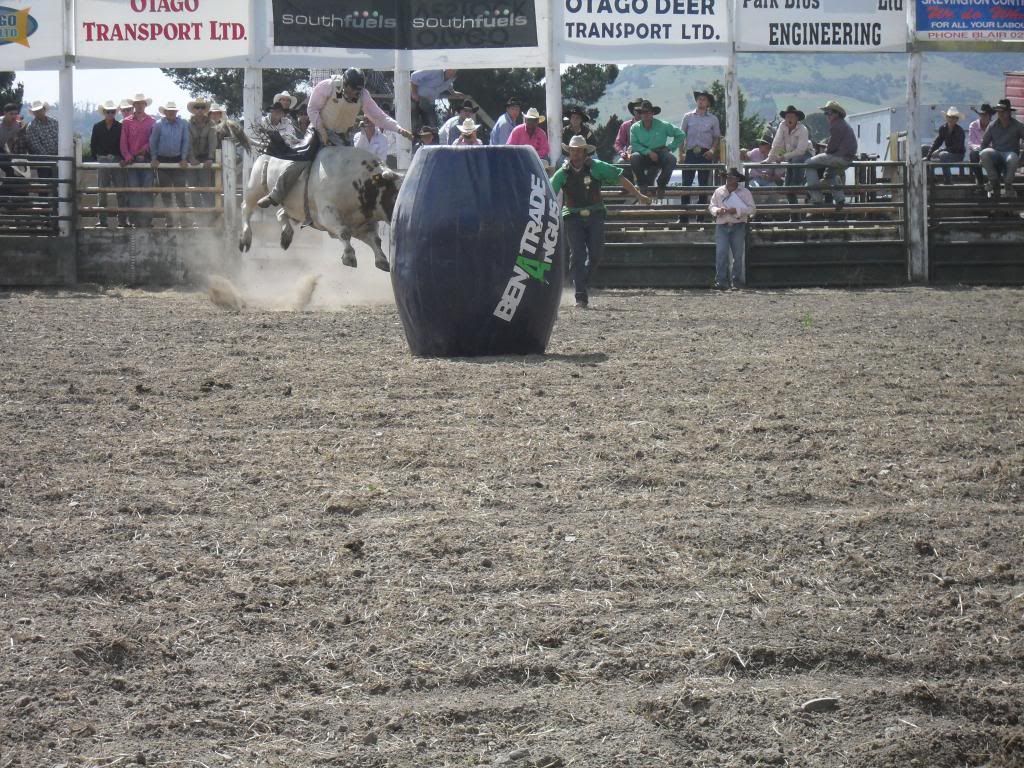 And keeps coming 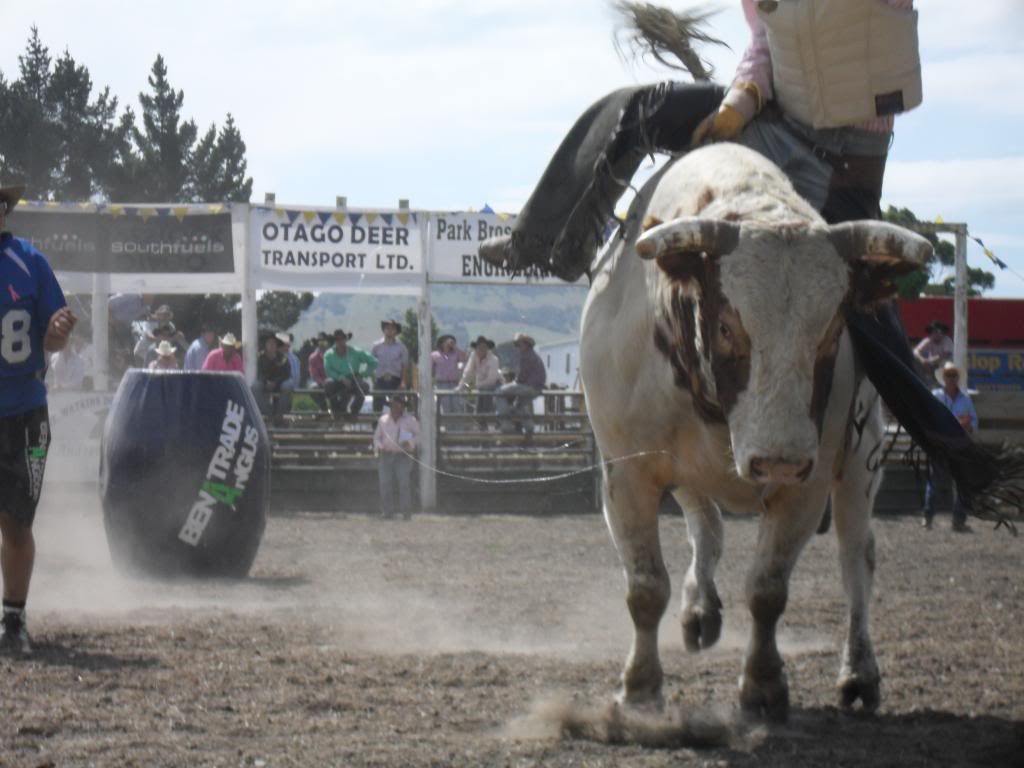 What a bloody great day out I had. |
|